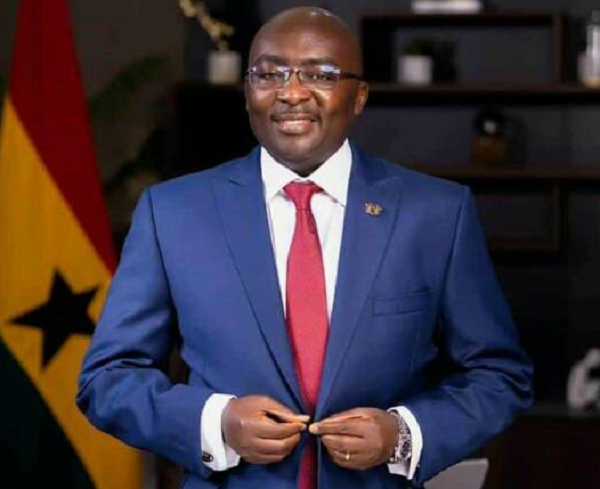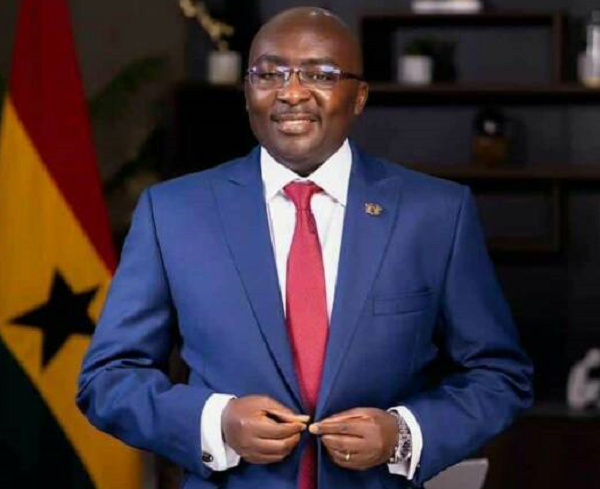
Member of Parliament for Ofoase Ayirebi, Kojo Oppong Nkrumah, has dismissed suggestions that former Vice President Dr Mahamudu Bawumia lacks strong leadership qualities. The former Works and Housing Minister stated during an X Space discussion that critics confuse respectful conduct with weakness.
Oppong Nkrumah argued that genuine leadership involves making principled stands without resorting to aggression or insults. He pointed to Bawumia’s early concession following the December 2024 presidential election as evidence of strength rather than weakness. The New Patriotic Party (NPP) flagbearer acknowledged defeat before the Electoral Commission (EC) released official results, calling President John Dramani Mahama to offer congratulations.
The legislator contrasted this behavior with what he described as less gracious responses to electoral defeat. He referenced the 2020 election when Mahama declined to call then President Nana Akufo Addo after losing, suggesting some observers mistake such posturing for strength. Oppong Nkrumah maintained that accepting defeat publicly demonstrates courage that many politicians lack.
Drawing from his cabinet experience, Oppong Nkrumah revealed that Bawumia consistently voiced opposition to certain taxes and levies during deliberations. The former vice president articulated concerns about specific fiscal measures and their potential economic impact, even when cabinet colleagues disagreed. He accepted decisions without hostility after votes went against his recommendations.
The parliamentarian emphasized that Bawumia’s collaborative approach reflects mature leadership rather than passivity. He described the former vice president as respectful and measured in presenting viewpoints, never needing to raise his voice or show disrespect to make his positions clear. This temperament, according to Oppong Nkrumah, enabled productive dialogue even during contentious policy debates.
Bawumia conceded defeat on December 8, 2024, approximately 15 hours after polling stations closed. Speaking from his residence with party officials present, he acknowledged that internal NPP data showed Mahama winning decisively. He stated his concession aimed to reduce tension and preserve national peace rather than waiting days for official certification.
Mahama won with 56.55 percent of votes against Bawumia’s 41.61 percent, according to Electoral Commission figures announced December 9. The National Democratic Congress (NDC) also secured parliamentary majority, ending eight years of NPP governance under Akufo Addo. The election unfolded against Ghana’s worst economic crisis in decades, marked by inflation, debt default and widespread hardship.
President Mahama later recounted receiving Bawumia’s congratulatory call while still asleep that Sunday morning. In a March 2025 address to clergy in Kumasi, Mahama expressed surprise at how quickly the election outcome became apparent. He described briefly washing his face before taking the call, during which Bawumia acknowledged defeat and announced plans to publicly concede.
Oppong Nkrumah’s defense comes as political observers analyze the NPP’s crushing defeat and consider leadership directions for the party. Some supporters have questioned whether Bawumia’s calm demeanor hampered his ability to energize voters during a challenging campaign. The former minister suggests these critiques misunderstand what effective leadership requires.
The Ofoase Ayirebi legislator retained his parliamentary seat in the December election despite the NPP’s nationwide losses. He previously served as Information Minister before moving to the Works and Housing portfolio. Oppong Nkrumah has emerged as a prominent NPP voice defending party decisions and articulating policy positions through traditional and social media platforms.
The debate over leadership styles reflects broader conversations within the NPP about its future direction. Some members advocate for more confrontational approaches to opposition politics, while others support maintaining institutional respect and procedural norms. These discussions will likely shape the party’s strategic choices as it rebuilds following the electoral setback.
Bawumia pledged full cooperation with Mahama’s administration during his concession speech, promising smooth transition and responsible opposition. He reassured supporters that democratic principles demanded accepting electoral outcomes with humility. The former vice president urged his party to reflect on the results and work toward regaining voter confidence.
Ghana’s peaceful transfer of power drew international praise as a model for democratic practice across Africa. The rapid concession prevented potential unrest and allowed attention to shift quickly toward governance challenges facing the incoming administration. Election observers noted the professionalism displayed by candidates, parties and electoral officials throughout the process.
